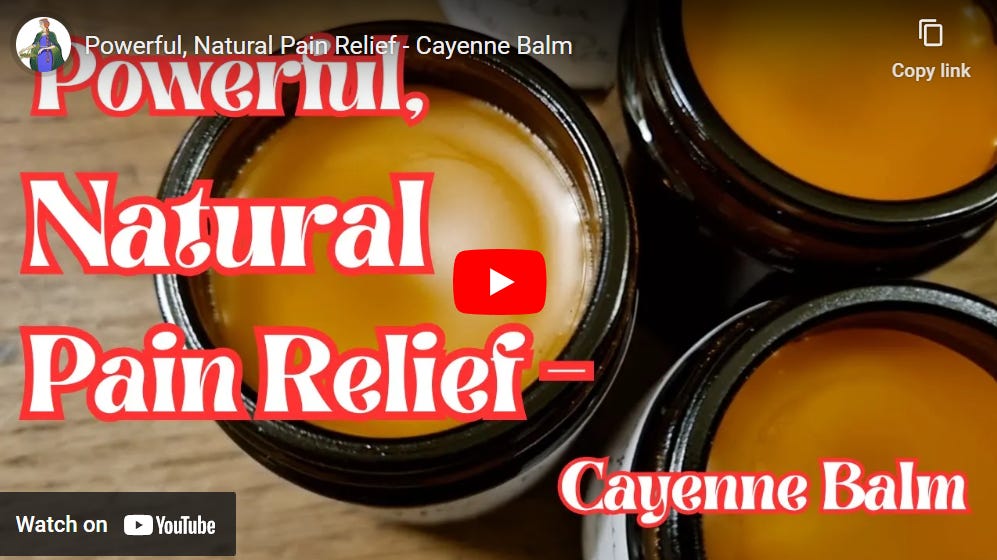One of my favorite people is Terri Conroy of Danu’s Irish Herb Garden in Ireland. In the video below she is demonstrating how to make a cayenne pepper salve. I’ve used this type of salve before with good results. I’m glad she reminded me, I’ll be making a batch this week.
Cayenne Pepper, or in Latin Capsicum, is a major stimulant for the circulatory system. It increases circulation in any area of the body that it comes in contact with, internally or externally.
Capsicum strengthens the heartbeat, and is useful for heart attack, shock, and trauma. Because adequate blood flow is necessary for all tissues to heal, capsicum has earned the reputation for being a kind of cure-all. As Teri mentions in the video below, it is an analgesic, meaning that “capsaicin” in capsicum depletes substance P and thereby partiall blocks pain receptors. A small part of capsicum is commonly added to many formulas as an accelerant. Substance P is a neuropeptide found in visceral sensory nerves and in the spinal cord and central nervous system. It is widely distributed in the human body, especially in nervous systems and inflammatory cells. A general assumption of the its action describes it as a neuropeptide released from pain-sensing fibers (nociceptors) to increase pain sensitivity through its actions in the dorsal horn of the spinal cord.
Properties: Analgesic (anodyne), carminative, counterirritant, diaphoretic, hemostatic, circulatory stimuland, and styptic (stops bleeding).
Capsicum is potent and due to its irritating nature (stimulating), some people have a difficult time taking it, especially in large doses that can irritate the stomach and cause painful bowel eliminations. Although capsicum stops bleeding and has been used to heal ulcers, this herb can cause pain when used for these purposes; hence, it should be used with caution. It is best to start with extremely small doses to determine your starting tolerance level, and slowly increased dosage to build up greater tolerance. When applied locally, capsicum causes burning sensations in sensitive areas such as the gentals, sinuses, and eyes, so be careful about washing hands after handling. It is not recommended for people with hemorrhoids or anal fissures. Topical use may exacerbate coughs caused by ACE inhibitors (Angiotensin-converting enzyme (ACE) inhibitors are medicines that help relax the veins and arteries to lower blood pressure.)
Dosages:
Tinctures: Dried (1:5 ratio, 60% alcohol); 5 drops to 1 ml (0.2 tsp) in water, or, as a less irritating alternative, milk or coconut milk. Or, if buying a prepared tincture use as directed on the bottle.
Capsule and power: 500-1,500 mg up to 3 times daily, preferably with food to buffer the irritating effects.
Topical Use: Apply tincture, oil, salve, or liniment as needed. This is a more gentle topical use since the oils and beeswax in salves help to buffer the capsicum.
Video:





